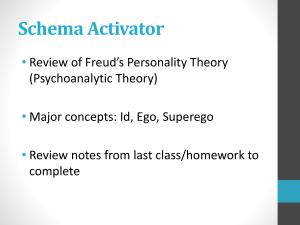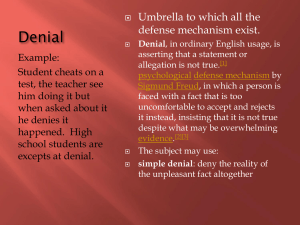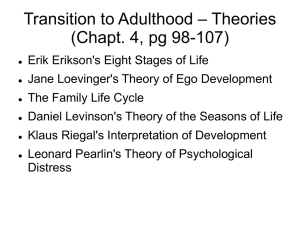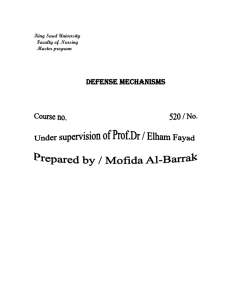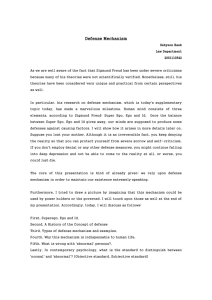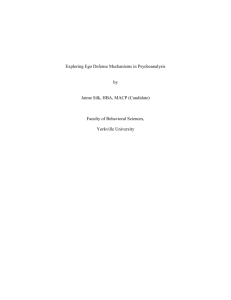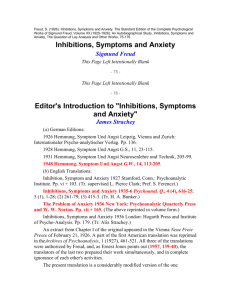Defense mechanisms
advertisement
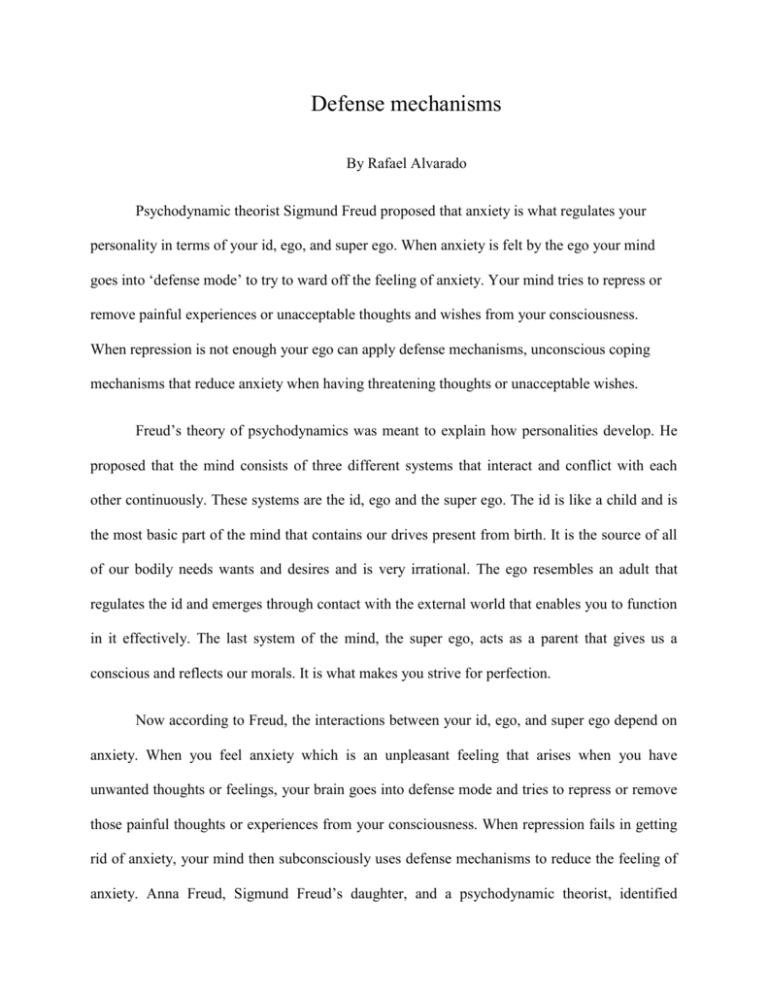
Defense mechanisms By Rafael Alvarado Psychodynamic theorist Sigmund Freud proposed that anxiety is what regulates your personality in terms of your id, ego, and super ego. When anxiety is felt by the ego your mind goes into ‘defense mode’ to try to ward off the feeling of anxiety. Your mind tries to repress or remove painful experiences or unacceptable thoughts and wishes from your consciousness. When repression is not enough your ego can apply defense mechanisms, unconscious coping mechanisms that reduce anxiety when having threatening thoughts or unacceptable wishes. Freud’s theory of psychodynamics was meant to explain how personalities develop. He proposed that the mind consists of three different systems that interact and conflict with each other continuously. These systems are the id, ego and the super ego. The id is like a child and is the most basic part of the mind that contains our drives present from birth. It is the source of all of our bodily needs wants and desires and is very irrational. The ego resembles an adult that regulates the id and emerges through contact with the external world that enables you to function in it effectively. The last system of the mind, the super ego, acts as a parent that gives us a conscious and reflects our morals. It is what makes you strive for perfection. Now according to Freud, the interactions between your id, ego, and super ego depend on anxiety. When you feel anxiety which is an unpleasant feeling that arises when you have unwanted thoughts or feelings, your brain goes into defense mode and tries to repress or remove those painful thoughts or experiences from your consciousness. When repression fails in getting rid of anxiety, your mind then subconsciously uses defense mechanisms to reduce the feeling of anxiety. Anna Freud, Sigmund Freud’s daughter, and a psychodynamic theorist, identified various different defense mechanisms and describes how people use them to cope with anxiety. The Defense mechanisms she identified are as follows: Rationalization-when a person comes up with a reasonable sounding explanation for feelings or behavior that is unacceptable to conceal their true feelings. Reaction Formation-unconsciously replacing threatening whishes with an exaggerated version of its opposite. Projection-attributing your own threatening feelings and impulses onto another person or group. Regression-when your ego deals with internal conflict by reverting to immature behavior, to a time when things felt safer and you felt more secure. Displacement-shifting unacceptable wishes to a neutral or less threatening alternative. Identification: Dealing with feelings of threat by unconsciously taking on the characteristics of a stronger person who seems more powerful to cope with the situation. Sublimation-channeling unacceptable sexual or aggressive drives into acceptable enriching activities. Out of all of the defense mechanisms described I recall having used displacement. The situation was when I got into an argument with my father which resulted in me losing my driving privileges for a time. I was very upset after that and I remember as I went to my room I slammed the door behind me and I started repeatedly punching my pillow. I had anger towards my father and instead of taking it out on him, which would have resulted in more dire consequences on my part; I displaced my anger out onto my possessions. The results of using this defense mechanism worked well for me and I will most likely keep using until I find a better method. Defense mechanisms are useful in our lives as the help us overcome anxiety and work effectively with the outside world. The defense mechanisms we choose to use in a healthy way are an important aspect of our individual personalities.
